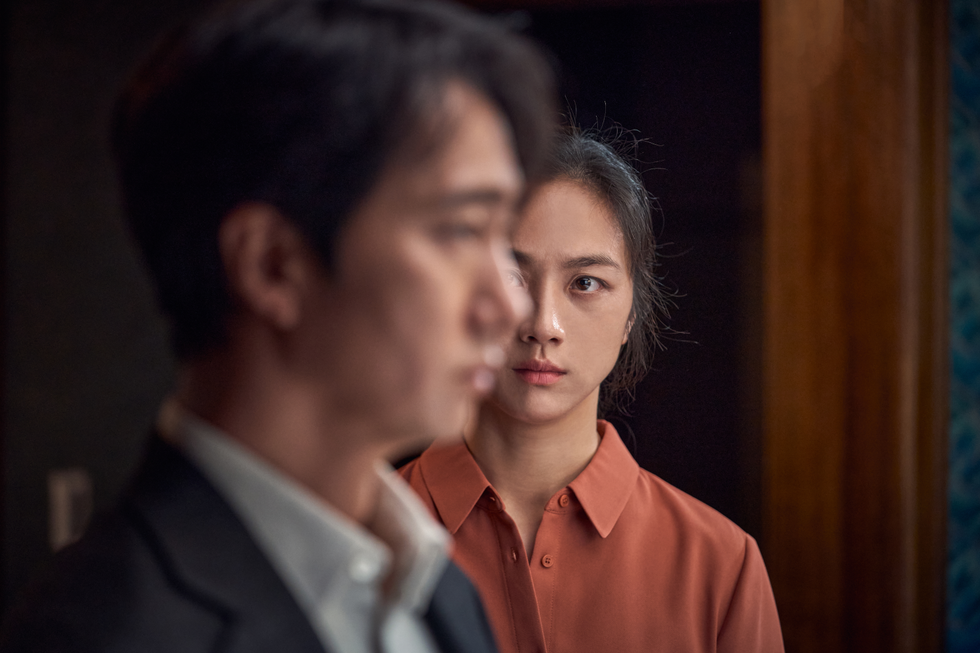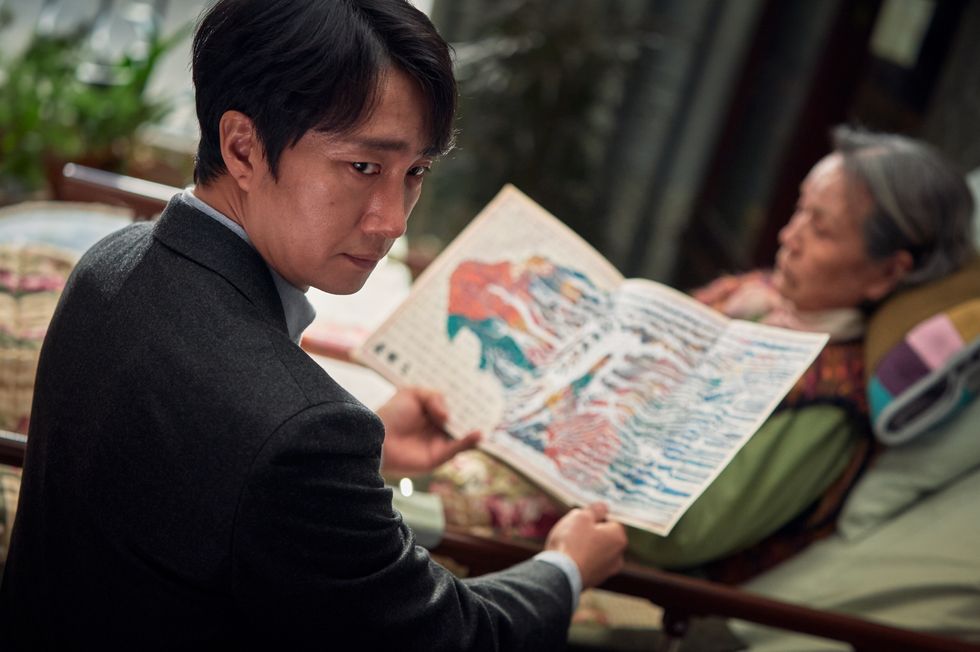Decision to Leave is a stylish and atmospheric thriller, in the best Hitchcockian tradition, from the Korean master Park Chan-Wook (Oldboy, The Handmaiden), about a hard-bitten homicide detective, bored in his marriage, who falls under the spell of a beautiful Chinese widow who may, or may not, have murdered her husband.
Written and directed with Park’s customary flair and imagination and acted with distinction by an accomplished cast (Park Hae-il is the frazzled cop, Tang Wei his enigmatic paramour), it is marinated in the tropes of American neo-noir — convoluted plot frequently taking a back seat to pure-cinema abstraction — with appealing kinks and quirks of its own, not least in its strain of deadpan absurdist wit. It also deftly demonstrates the many ways in which an intelligent filmmaker can use twenty-first century technology to enhance rather than compromise the crime procedural; it’s Vertigo with smartphones.
All of which might make a person wonder why, when it is plainly superior to quite a number of the contenders for this year’s Oscars (Elvis: face palm emoji), it hasn’t even been corralled into the Best International Feature Film ghetto, let alone allocated its moment in the spotlight of Best Picture.
Such speculation would of course miss the point of the Oscars, which have never been and are not intended to be a celebration of the best films released in a twelve-month period, whether American or otherwise — but rather a meretricious jewellery-jangling jamboree designed specifically to promote mainstream Hollywood product in the (hold your noses) global marketplace as well as, more dismayingly, rhapsodising the “values” of the Academy, most essentially the value of self-congratulation. The occasional misleading exception, such as the 2020 Best Picture, Parasite, also from Korea, only serves to throw the more typical travesties into starker relief.
Decision to Leave, then, would be a worthy Oscar winner, but not a representative one, because it’s far too much fun. In fact, it is exactly the kind of slick, sophisticated genre flick that Hollywood used to produce each year by the half-dozen and then overlook during awards season in favour of flatulent imperialist epics and cloying chocolate box dramas which open to reveal risibly solemn life lessons.
One can imagine a 1980s version of Park’s movie, directed by Brian de Palma, delectably lurid, with dodgy sexual politics and fashion ad aesthetics, starring Al Pacino or Richard Gere, or, better yet, that era’s go-to sweaty adulterer, Michael Douglas, as the insomniac horndog cop wrapped around the ring finger of the exotic femme fatale (Isabelle Adjani?)
Decision to Leave is a good deal more restrained than those 1980s and 90s offerings. It substitutes romantic yearning for sexual obsession: a surprise to those of us susceptible to the raunchier enticements of The Handmaiden. But in spirit and execution, it’s part of an ignoble tradition, stretching back almost as far as cinema itself, and all the juicier for it.
As we know, the days of steamy thrillers with audiences of date-night grown-ups in their crosshairs are long gone in American cinema. There is no longer a market for mid-budget studio films. And, anyway, as we’ve said, those movies by popular filmmakers working in the shadow of Hitch, making alluring, adult-oriented pulp — in addition to De Palma one thinks of Paul Verhoeven and Adrian Lyne, as well as the more self-consciously arty David Cronenberg and Michael Mann — were invariably overlooked by Oscar voters. The Academy Awards have never been about danger, let alone eroticism.
Infamously, Hitchcock was nominated five times for Best Director and never won. Neither of the classics directly referenced in Decision to Leave — Vertigo and Rear Window — took home the statuette for Best Picture. Nor, for that matter, did Psycho or North by Northwest. Of all the old boy’s spine-tinglers, only Rebecca, his magnificently creepy 1940 du Maurier adaptation, won the big gong.
One could be forgiven for asking if the people who award the Oscars even like movies. But don’t let the dreary Academy put you off. If you missed Decision to Leave at the cinema, you can catch it now on MUBI, Prime Video, and Sky.














